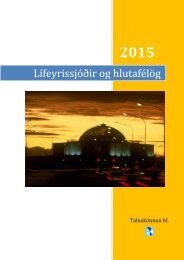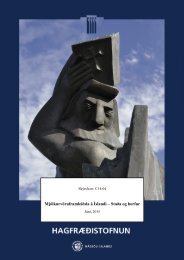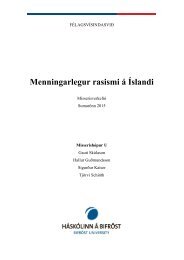You also want an ePaper? Increase the reach of your titles
YUMPU automatically turns print PDFs into web optimized ePapers that Google loves.
WORLD REPORT 2016<br />
HUMAN RIGHTS WATCH<br />
turn hostile because of threats and harassment from powerful perpetrators, remains<br />
a serious problem.<br />
Impunity<br />
In May, the northeastern state of Tripura revoked the draconian Armed Forces<br />
Special Powers Act (AFSPA), citing a decline in insurgency. However, it remains<br />
in force in Jammu and Kashmir and in other northeastern states. AFSPA has been<br />
widely criticized by rights groups and numerous independent commissions have<br />
recommended repealing or amending the law, but the government has not done<br />
so in the face of stiff army opposition.<br />
A May report by the United Nations special rapporteur on extrajudicial, summary,<br />
or arbitrary executions noted that “impunity remains a serious problem” and expressed<br />
regret that India had not repealed or at least radically amended AFSPA.<br />
Proposed police reforms again stalled in 2015 even as police committed serious<br />
violations including arbitrary arrests, torture, and extrajudicial “encounter”<br />
killings. In April, police killed 20 men in the forests of Andhra Pradesh, alleging<br />
they were smugglers and claiming they fired in self-defense. On the same day,<br />
five terrorism suspects in Telangana state were killed in custody as they were<br />
being transported from jail for a court hearing. Investigations are pending in<br />
both cases; rights groups say there is evidence that police staged both sets of<br />
killings.<br />
In 2014 and 2015, several police officials were reinstated in Gujarat despite having<br />
been implicated in the alleged 2004 “encounter” killing of 19-year-old Ishrat<br />
Jahan and three others, raising concerns about the government’s commitment to<br />
police accountability.<br />
Women’s Rights<br />
Violence against women, particularly rape and murder, made headlines throughout<br />
2015. While legal reforms introduced in response to the 2012 Delhi gang<br />
rape and murder gave prosecutors new tools for pursuing such crimes, they also<br />
expanded use of the death penalty. The Indian government does not appear to<br />
have a mechanism in place to track the efficacy of the reforms in preventing and<br />
punishing sexual violence. It has also failed to take effective measures to reduce<br />
sexual harassment and improve women’s access to safe transportation.<br />
In August, village leaders in Uttar Pradesh state allegedly ordered the rape of<br />
two Dalit sisters to pay for the “sins” of their brother who had eloped with a<br />
higher-caste woman. These unofficial village councils, called Khaps, made up of<br />
men from dominant castes who often enjoy political patronage, are known to<br />
issue edicts restricting women’s mobility and rights, and condemning couples<br />
for marrying outside their caste or religion.<br />
Children’s Rights<br />
In May, the lower house of parliament passed amendments to the Juvenile Justice<br />
Act to permit prosecution of 16 and 17-year-olds in adult court when charged<br />
with serious crimes such as rape and murder. A parliamentary standing committee,<br />
children’s rights activists, and the National Commission for Protection of<br />
Child Rights all strongly oppose the amendments.<br />
In May, the cabinet cleared amendments to the prohibition of child labor law. If<br />
passed by parliament, they would prohibit most employment of children under<br />
14, but would permit them to work in family enterprises after school hours. This<br />
amendment, in the absence of effective implementation of the right to education<br />
law, could actually push more children into child labor.<br />
Government statistics show that two out of five children drop out of school before<br />
completing eighth grade. The numbers are even higher for children from<br />
poor and marginalized communities because of discrimination based on caste,<br />
religion, and ethnicity. Those who drop out often end up being subjected to child<br />
labor and early marriage.<br />
Sexual Orientation and Gender Identity<br />
LGBT individuals continue to face harassment, extortion, intimidation, and<br />
abuse, including by the police. In December 2013, the Supreme Court upheld the<br />
constitutionality of section 377 of the Indian penal code, which criminalizes<br />
same-sex conduct between consenting adults. An appeal was pending at time of<br />
writing.<br />
300<br />
301










